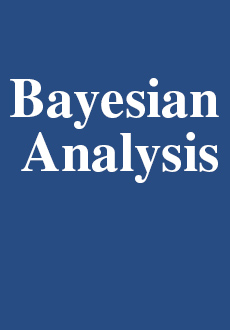Abstract
Quasi-infinitely divisible (QID) distributions have been recently introduced. A random variable X is QID if and only if there exist two infinitely divisible random variables Y and Z s.t. and Y is independent of X. In this work, we introduce QID completely random measures (CRMs) and show that a certain family of QID CRMs is dense in the space of all CRMs with respect to convergence in distribution. We further demonstrate that the elements of this family possess a Lévy-Khintchine formulation and that there exists a one to one correspondence between their law and certain characteristic pairs. We prove the same results also for the class of point processes with independent increments. In the second part of the paper, we show the relevance of these results in a general Bayesian nonparametric framework suitable for topic modelling, and provide a truncation error analysis.
Funding Statement
The research developed in this paper is supported by the EPSRC (award ref. 1643696) at Imperial College London and by the Fondation Sciences Mathématiques de Paris (FSMP) fellowship, held at LPSM (Sorbonne University).
Acknowledgments
The author would like to thank Almut Veraart, Fabio Bernasconi, Ismael Castillo and Antonio Lijoi for useful discussions. We also thank two anonymous Referees, the Associate Editor, and the Editor-in-Chief for their numerous constructive comments, which improved the presentation and the content of the work.
Citation
Riccardo Passeggeri. "On Quasi-Infinitely Divisible Random Measures." Bayesian Anal. 18 (1) 253 - 286, March 2023. https://doi.org/10.1214/21-BA1289
Information





